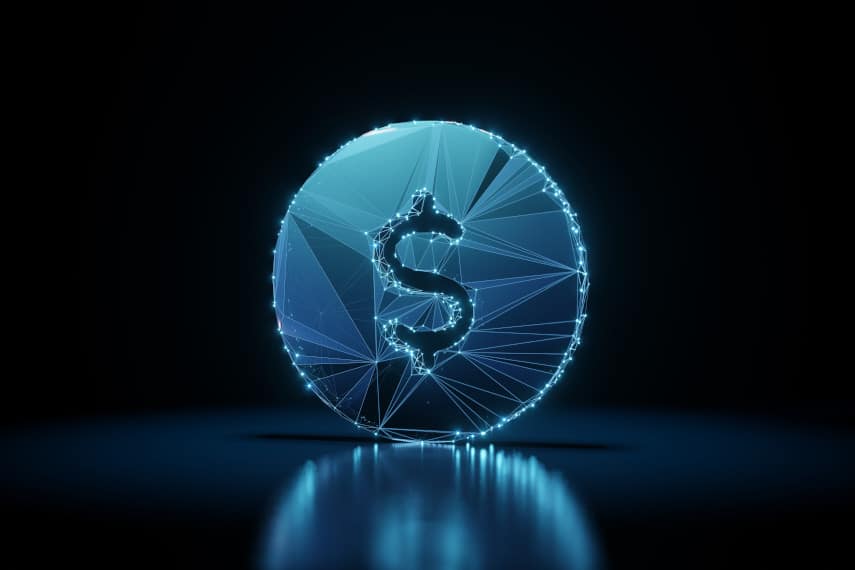3 Things That You Should Know About Inflation
Only a few short years ago, the United States experienced the highest inflation rates in over 40 years as inflation rates peaked at over 9% That was a wake up call for many Americans who had been...
Economy

The concept of the digital dollar is something that seems to have gone from discussion to potential implementation quicker than anyone thought possible. While the idea of a digital dollar, a central bank digital currency (CBDC), has existed in the backs of the minds of policymakers for a while, it was only in recent years that it began to garner serious discussion as a policy proposal. And now the idea of a digital dollar seems to be picking up steam.
Recent events surrounding the failure of cryptocurrency exchange FTX seem to have breathed new life into digital dollar proposals. The massive loss of customer funds and possible fraud at FTX could be just what regulators have been looking for to crack down on private cryptocurrencies and introduce a digital dollar. As Rahm Emanuel famously quipped, never let a good crisis go to waste.
If you don’t own cryptocurrencies, haven’t ever thought about cryptocurrencies, or have no plans to get involved in cryptocurrencies, you may think this is nothing that concerns you. But you couldn’t be more wrong. If the worst case scenario of a digital dollar comes to pass, you could be forced into accepting a digital dollar, eroding your financial privacy.
Bitcoin was the first cryptocurrency to gain widespread attention. Created in the aftermath of the 2008 financial crisis in an attempt to overcome some of the problems inherent in fiat currencies, Bitcoin was at first viewed as a curiosity at best or dangerous at worst.
Regulators and law enforcement agencies warned that Bitcoin was a means of enabling money laundering or financing terrorism. Lack of adoption kept Bitcoin’s price low, but also kept governments from trying to ban Bitcoin outright.
Eventually Bitcoin began to see more widespread adoption, including as a method of payment at point of sale. The popularity of Bitcoin began to spur the development of other cryptocurrencies such as Litecoin, Ethereum, and XRP. And in what seemed like the blink of an eye, an entire ecosystem was developed to support the continued development, use, and adoption of cryptocurrencies.
Authorities in the US have thus far taken a relatively hands-off approach to cryptocurrencies. With the exception of limited IRS guidance with regard to tax treatment of cryptocurrency gains, regulators haven’t really issued any cryptocurrency guidelines. There’s still debate as to whether cryptocurrencies should be treated as commodities, regulated by the Commodities Futures Trade Commission (CFTC), or as securities, regulated by the Securities and Exchange Commission (SEC).
The US approach stands in stark contrast to China, which moved relatively quickly to ban Bitcoin mining and Bitcoin trading. China went on to develop its own CBDC, a digital yuan, and is in the process of rolling it out in select Chinese cities. Perhaps moved by China’s decision, the Federal Reserve finally began towards the end of 2020 to publicize its decision to start studying the adoption and implications of a digital dollar.
The differences between cryptocurrencies like Bitcoin and a CBDC are stark. Bitcoin was intended to be a decentralized digital currency, one in which no single issuer could issue a currency or unilaterally change the rules of currency issuance. A CBDC, by contrast, has a single issuer, the central bank, who determines how many units of the CBDC will be produced and can change that amount unilaterally at any time.
Whereas Bitcoin has a fixed limit of bitcoins that can be created, CBDCs can be created ad infinitum. All the benefits Bitcoin and similar cryptocurrencies were supposed to provide, such as decentralization, limited currency issuance, peer-to-peer transactions, and pseudonymity, are undone by CBDCs.
A CBDC allows government authorities to monitor financial transactions in a way they weren’t able to before. If cryptocurrencies are a digital form of cash, then CBDCs are a trackable form of cash. Governments love the idea of CBDCs because it gives them more control over the financial system.
Not only can governments track who is using CBDCs and what they’re spending them on, they could theoretically also limit what CBDCs are used for or who can use them. Since CBDC use will almost certainly require some sort of identity verification, individuals who are deemed to be security risks or who fall afoul of the government in some way could be forbidden from using the CBDC.
Just look at what has recently been revealed at Twitter, that government officials put pressure on Twitter to ban certain individuals and censor views they disagreed with. Now imagine what would happen if these same officials went to the central bank and asked central bank officials to monitor or freeze the CBDC usage of those same people they don’t like.
Visa and banks recently developed a new code to use to flag transactions dealing with guns and gun parts. Now imagine that government or central bank officials flag any transactions using those codes and forbid you from using your CBDC holdings to buy guns, ammo, or gun parts. That’s not an unfounded fear, given the recent gun control moves made by many state governments.
You may think, so what, I don’t need to use a CBDC, I can just use cash. But can you?
Look at what’s happening in Nigeria, where nearly one-third of the population uses Bitcoin or other cryptocurrencies. The government developed a CBDC but it is facing low adoption rates. So the government has decided to limit the amount of money that Nigerians can withdraw from ATMs in an attempt to force people away from using cash and into using the CBDC.
Anytime governments don’t get their way in the monetary sphere, they use the force of law to force acceptance and compliance. When the US government introduced national bank notes in the 1860s, it had to tax the issuance of state bank notes in order to limit competition, eventually taxing them at a rate of 10%. And when the Federal Reserve Act was passed in 1913, it sought to push national bank notes out of circulation with a tax of up to 6%.
Given the government’s history of trying to tax out of circulation currencies it doesn’t want circulating, you can’t put it past Congress trying to pass such a tax in the event that it authorizes a digital dollar. Imagine having to pay a tax on bank deposits, or a tax to withdraw cash from your bank account. While it’s hard to imagine that happening today, if Congress gets serious about a digital dollar those are just some of the proposals that could be on the table.
In a country in which one quarter of the population still doesn’t have internet access, the logistics of rolling out a digital dollar could be difficult. And if use of the digital dollar becomes required, either through government fiat or various incentives, it could negatively impact many households.
Millions of Americans don’t want to have their every transaction recorded, tracked, and traced by the government. Voluntary acceptance of a digital dollar, therefore, could be low. And if the government takes steps to try to force cash out of use in favor of the digital dollar, it could end up debilitating the financial system.
If the use of cash is disincentivized through some sort of taxation scheme, you would have to imagine that millions of people would try to get ahead of that scheme by withdrawing their money or closing their accounts. They might even try to convert their bank accounts or cash holdings into tangible assets like gold and silver. But if enough people remove enough money, it could severely impact banks who don’t keep enough reserves on hand to cover withdrawals, leading to destabilization of the banking system.
There are still a lot of questions about a digital dollar, how it would function, what the rules of implementation would be, etc. While nothing is set in stone, that isn’t preventing people from trying to protect themselves from the potential effects of that digital dollar right now.
If a digital dollar is introduced, it’s going to be far more difficult to achieve financial privacy. Use of cash could end up being heavily discouraged, and financial transactions could be more heavily surveilled. That’s why so many people are trying to get ahead of the curve.
Some people are buying gold and silver in an attempt to hold physical, tangible assets that they can use to help maintain their financial privacy. While digital currency can have many benefits, their potential use as tracking tools is going to be anathema to many Americans.
If you’re worried about the potential adoption of a digital dollar, is it worth it to you to start thinking about how gold and silver could help protect you? Call the experts today to learn more about your gold and silver investment options.

